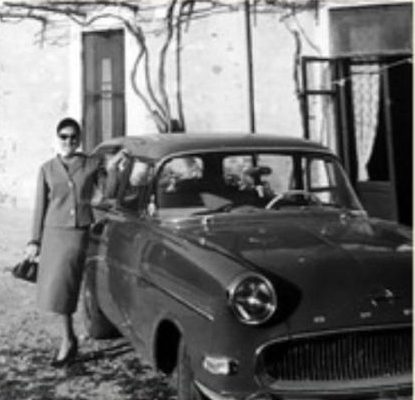
The coup d’état by Gaddafi in 1969 led to the expulsion and expropriation of about 20,000 Italian citizens up to the current conflicts on migratory flows. All the wounds that are hard to heal are still alive. In particular, the memory of the many Italian families who, after the creation of the Arab Republic of Libya, were forced to leave the country, hastily abandoning everything they had achieved. A particularly valuable testimony of this crucial and still unresolved phase in relations between Italy and Libya is that of the journalist Mariza D’Anna, who in a recently published book, “The Memory That One Has”, tells the story of her family. A Sicilian family that since the 1930’s, moved to Libya where it created a thriving farm, then moved its barycenter to North Africa. Then in 1970, they were forced to return to Italy, throwing decades of work, experience and wealth to the wind. The show, which bears the same title as the book, aims to translate the ethical and historical meaning of this exemplary story into sounds and images.
Guido Barbieri
This story comes from the sea, a memory carried by a Scirocco wind. A wind that crosses the Mediterranean and accompanies the history of this family, retracing the events, emotions, places of the heart and feelings, pains and abandonment. The characters evoked and the places described in the libretto outline suspended exoticisms. From the highest rock spur of Lampedusa, on clear spring days, you can see the blue line of the Benghazi coast. The place of remembrance is Biar Miggi, a district of Tarhuna one hundred kilometers from Tripoli, during the years of Italian colonialism. The farm of the protagonist’s grandfather is the realization of a dream, that of a wealthy Sicilian entrepreneur and his Venetian factor. Together they manage to transform a remote corner of the desert into a place of the soul. Sand that welcomes over time, expanses of pistachio trees, olive trees, almond trees and vineyards. With dedication they dig wells, ruthless desert spurs, build a Sicilian beam in the land of Africa. But the story is also a continuous historical reference. These are crude pages from the story of the mass genocide and deportation of rebel populations from Cyrenaica, up to the coup d’état carried out by captain Muammmar Gaddafi. An upheaval that resulted in droves of Italian colonists who forcibly embarked on a definitive return trip. Exiles forced to leave what is now their homeland with the memory that one has.
How crude are the pages of the Libyan poet Rajab Abyhweish, an artist who gave birth to the poem “My only torment” while in a concentration camp in El-Aghelia. Excerpts of these lyrics become live musical material that dialogues with elaborations from Ara band Sicilian lullabies.The opera ends with Daniza, the young daughter of the protagonist whose image in thefinal scene overlaps another sadly known to us: that of one of the many refugees whotry to reach us by crossing the same sea, following the same wind, on a journey that seems to repeat itself inexorably, translated in time and space, but with the same baggage of memories and emotions.
Carla Magnan and Carla Rebora
